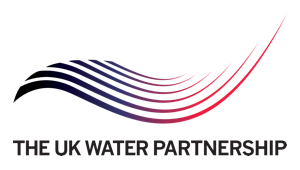A new UN report warns that without large new water-related investments many societies worldwide will soon confront rising desperation and conflicts over life’s most essential resource.
Presenting their report at UN Headquarters, New York, officials of UN University and the UN Office for Sustainable Development said unmet water goals threaten many world regions and form a barrier to key universally-shared ambitions including stable political systems, greater wealth and better health for all.
Continued stalling, coupled with population growth, economic instability, disrupted climate patterns and other variables, could reverse hard-earned development gains and preclude meaningful levels of development that can be sustained into the future.
Says lead author Bob Sandford, EPCOR Chair, Canadian Partnership Initiative in support of the UN Water for Life Decade: “The consequence of unmet water goals will be widespread insecurity creating more international tension and conflict. The positive message is that if we can keep moving now on water-related Sustainable Development Goals we can still have the future we want.”
Published in the run-up to the adoption this September of universal post-2015 Sustainable Development Goals (SDGs), the report provides an in-depth analysis of 10 countries to show how achieving water and sanitation-related SDGs offers a rapid, cost effective way to achieve sustainable development.
The countries included in the study cover the full range of economic and development spectrum: Bangladesh, Bolivia, Canada, Indonesia, Republic of Korea, Pakistan, Singapore, Uganda, Vietnam, and Zambia.
Based on the national case studies, the report prescribes country level steps for achieving the global water targets.
Among top recommendations: Hold the agriculture sector (which guzzles roughly 70% of world water supplies), and the energy sector (15%), accountable for making efficiencies while transitioning to clean energy including hydropower.
Prepared in association with the Global Water Partnership and Canada’s McMaster University, the report says the success of global efforts on the scale required rests in large part on a crackdown on widespread corruption in the water sector, particularly in developing countries.
“In many places … corruption is resulting in the hemorrhaging of precious financial resources,” siphoning an estimated 30% of funds earmarked for water and sanitation-related improvements.
The report underscores the need for clearly defined anti-corruption protocols enforced with harsh penalties.
Given accelerating Earth system changes and the growing threat of hydro-climatic disruption, corruption undermining water-related improvements threatens the stability and very existence of some nation states, which in turn affects all other countries, the report says.
Further information can be found here.
- Log in to post comments

 The Water Security Knowledge Exchange Portal supports the objectives of the
The Water Security Knowledge Exchange Portal supports the objectives of the 